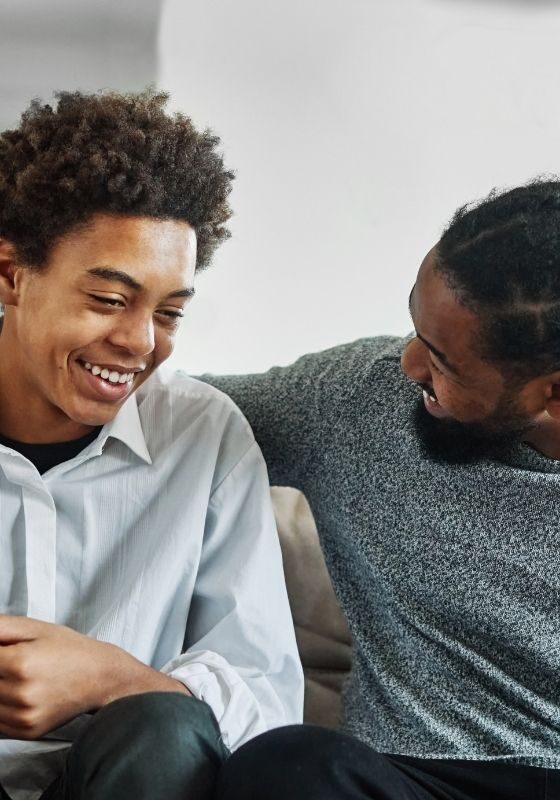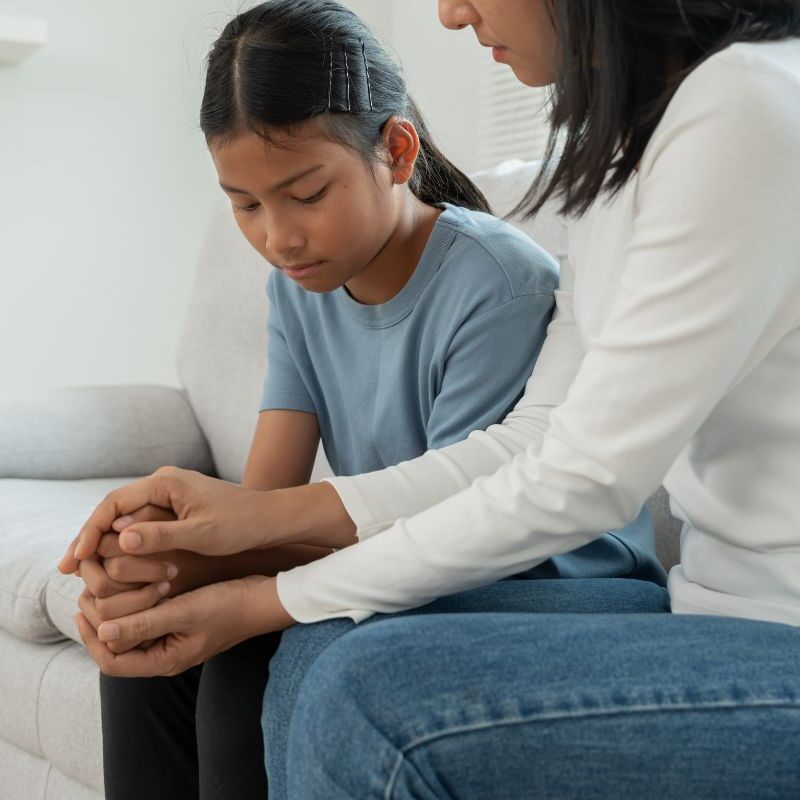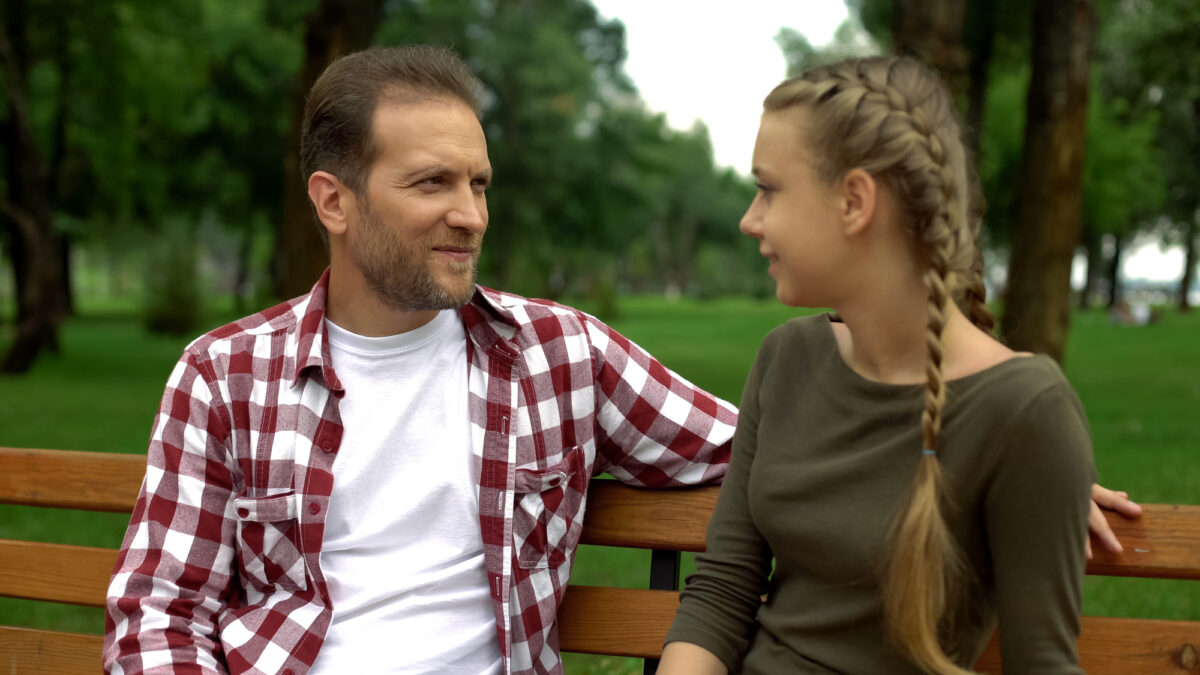
How To Prevent Suicide By Talking About It With Teens And Adults
Candid conversations can help prevent suicide. Talking about it helps break down mental health stigmas and barriers.
Learn the questions to ask, and if someone needs immediate help, call 988 to speak with someone 24/7.


Talking about suicide
It may seem hard to talk about suicide, but talking can prevent it.
Start a conversation with anyone who seems:
- down
- sad
- lonely
- uninterested in normal activities or get-togethers
Reach out to them and ask them how they’re doing.
On “What’s the 211?” podcast, Brandon Johnson, MSH, host of The Black Mental Wellness Lounge on YouTube, talked about the reluctance to talk about suicide.
“Suicide is such a heavy topic. I totally understand that, but as we see our rates in specific communities continuing to rise, it’s important that we understand that suicidal ideation is real.”
When talking about suicide, choose words carefully. By changing the language, we can ensure that people are comfortable discussing the topic and feel hopeful.
“...we want to change the language. So, people feel that they can have the conversations in a safe space and not be harmed, initially just by the language before they even have it as a chance to experience the potential for hope and recovery,” Johnson explained.
Also, avoid generalized characterizations of people and avoid slang. Johnson explained,
“So, we may say this person’s OCD or this person’s acting bipolar, or this person is schizophrenic, without actually taking into consideration what that really means and how stigmatizing that is to a person who may be bipolar, right? Who may be schizophrenic, who may have OCD. In trivializing, their experiences to a slang term use, usually interrogatory to someone else is, is something that can be damaging even down to suicidal ideation.”
Need to Talk?
 Call or Text 988
Call or Text 988
Anyone in need of assistance with mental health or substance use-related needs can call 988. Learn about 988 in Maryland.
Talking to Teens
It can be challenging to talk with a teen as they're going through a lot socially, emotionally and mentally.
If they're struggling with how they feel about themself, it can be even harder to have these conversations.
Amy Ocasio of the LIVEFORTHOMAS Foundation talked about the struggle of talking to her children.
“So, I definitely found struggles with finding that balance because with both of my kids, I’ve learned that if I let them come to me, that they’ll talk. If I started asking questions, that’s when they just kind of shut down.
So, it was finding that balance of how much do I push? When do I pull back?”
She emphasized the importance of language, and empathy as a parent. She said she found it’s important not to dismiss, downplay, or minimize what her child was saying. Sometimes what may seem trivial for an adult, is monumental for a kid.
“You know, just listen. You don’t even have to understand like, okay, I don’t understand why this is a big deal, but you know it is to my child. So, let me find out more about what’s going on and ask them, you know, what do you need from me? Like what will be helpful for you in this situation?” Ocasio explained.
Adolescence is a time of risk and opportunity. Suicide is one of those risks. It’s the second-leading cause of death in young people between the ages of 10 and 24, according to the Centers for Disease Control.
A child who's never dealt with their mental health before may experience challenges as an adolescent. Social pressures, bullying and sexuality are all reasons why.
Talk to your teens about their mental health, and look for warning signs of a behavioral health concern.
If they need help, connect them with 988.
Find Mental Health Resources
Search the state's most comprehensive behavioral health resource database, which features filters available by type of payment, age, type of support, and language.
Mental Health Questions To Ask
Before you begin the conversation, create a safe space for discussion and be ready to listen.
Ask open-ended questions, and start the conversation with a phrase like "I've noticed."
The Maryland Department of Health and the Maryland Office of Suicide Prevention recommend phrases like these:
- We haven’t talked in awhile. How are you?
- You seem down lately. What’s going on?
- I’m worried about you. Is something wrong? I want to be there for you.
- You haven’t been yourself lately. Are you ok?
- Is there anything you want to talk about?
It’s essential to listen and show that you care. Support your family member or friend by getting together with them or checking in on them.
You’re not expected to provide advice, but you can refer them to professionals or free and confidential resources like 988.

How To Talk To LGBTQ+ Youth
At least one LGBTQ+ youth between the ages of 13 and 24 attempts suicide every 45 seconds in the United States.
When someone comes out to you, support the individual, show love and be present.
The Maryland Department of Health, Office of Suicide Prevention suggests supportive phrases like:
- “Thank you for sharing with me. What does your identity mean to you?
- “I’m so happy you told me, and I want you to know this won’t change our relationship in any way.”
- “I’m really excited for you.”
Make sure you send support, rather than denying what the individual said to you. Do not refer to it as a phase. Show support and listen.
Also, use LGBTQ+ affirming language in conversation with others. Eliminate gendered language like “you guys” and replace it with “you all.”
Get Help from Professional Talk Therapists
While it's essential to connect with friends and check in on their mental health, consult an expert if you have a concern.
Psychotherapy, or “talk therapy,” can effectively reduce suicide risk. One type is called cognitive behavioral therapy (CBT). CBT can help people learn new ways of dealing with stressful experiences by training them to consider alternative actions when thoughts of suicide arise.
Another type of psychotherapy, called dialectical behavior therapy (DBT) has been shown to reduce the rate of suicide among people with borderline personality disorder, a serious mental illness characterized by unstable moods, relationships, self-image, and behavior.
A therapist trained in DBT helps a person recognize when his or her feelings or actions are disruptive or unhealthy and teaches the skills needed to deal better with upsetting situations.
Have Another Concern?
211 has information and referrals for other mental health concerns and essential needs. Learn about these other assistance programs.
Finding Mental Health Support
Call or text 988 for immediate support.
You can also find professional mental health support nearby by searching the 988 behavioral health resource database, powered by Maryland Information Network.

Ongoing Support
Youth may find support in a general behavioral health or suicide prevention program or through a teen-focused program like MDYoungMinds or Taking Flight.
Youth
MDYoungMinds is a text support program through 211 and the Maryland Department of Health, Office of Suicide Prevention. It sends supportive text messages focused on teen and adolescent mental health concerns and stressors.
Taking Flight is a peer support program with young adult leaders (aged 18 to 26) who have personal experience with behavioral health concerns or trauma. They empower young adults with weekly virtual meetups and social media peer support.
Adults
MDMindHealth sends motivational messages and resources for mental health services. The text messages are also available in Spanish at MDSaludMental.
On mobile, you can click the buttons below to sign up.
By texting MDMindHealth to 898-211, you agree to receive recurring automated messages.
Learn from experts
Also, consult other resources for ideas in talking about mental health and suicide, like discussions from mental health experts like Johnson. He has a series of discussions with school counselors, a child psychiatrist, and other experts covering topics like supporting a family member with their mental health, using mindfulness meditation to support your mental wellness, racial trauma, and transforming your pain into passion.
Related Information
explore assistance programs
Learn about benefit programs and how to connect with support.









